by Sholeh Johnston
“I am what I am because of who we are.”
This proverb from the Nguni people of South Africa describes the essence of Ubuntu, a word literally translated as “humanity.” It is an African philosophy that believes humanity to be an interconnected, universal bond. According to Ubuntu, fulfillment is achieved in behaving kindly towards others and acting in the best interests of the community, not the individual. Ubuntu was at the heart of the fight to end apartheid, the Truth and Reconciliation Commission that followed, and Nelson Mandela’s bold constitution for the new South African’s state in 1994. Speaking at Mandela’s memorial service, Barak Obama said, “Ubuntu… captures Mandela’s greatest gift: his recognition that we are all bound together in ways that are invisible to the eye; that there is a oneness to humanity; that we achieve ourselves by sharing ourselves with others, and caring for those around us.”
Time is fluid here compared to Europe. Eventually, Madala Kunene, an elderly guitarist and godfather of South African indigenous blues music, takes his seat on the grassy stage and begins to play. After each line he sings, the black audience members answer his call and sing his lyrics back to him. It drives a meditative melody that gathers pace and intensity as the audience and singer pass words, emotion and the history of this tradition back and forth over the stream that separates the stage from the audience. His song is only complete when they participate. Every line of song he ends brings their voices into existence. The song is not his alone, he is a facilitator for collective expression.
While the different expressions of collective humanity that I encountered in South Africa were distinct and diverse, a common thread ran through all of them: a belief in togetherness, collectivism, generosity and a shared notion of humanity. Ubuntu is more than a South African cultural experience: it mirrors so many other notions of a common humanity in cultures around the world, not least the Sufi concept of wahdat al-wujud, “unity of being.” In the call and response of Kunene’s song, I recognized a stir in the heart. A familiarity. A desire to participate, to be one; a reminder of the power of art to unlock our capacity not only to understand Ubuntu intellectually, but to sense its truth in our deepest selves.
PHOTO © SHOLEH JOHNSTON
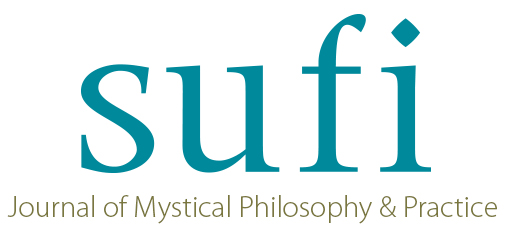
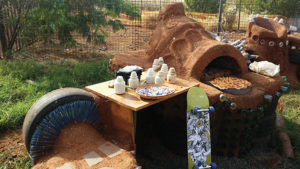
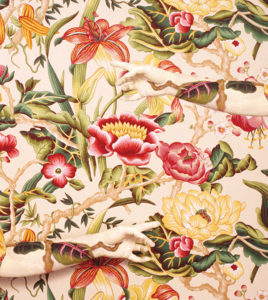 by Mark Nepo
by Mark Nepo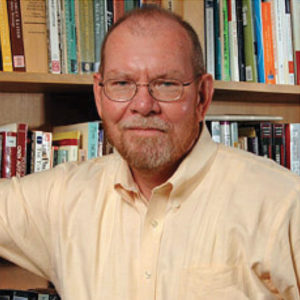 CHRIS ELLERY is the author of four collections of poetry, most recently Elder Tree and The Big Mosque of Mercy, which include poems based on his encounters with Sufis in Syria, where he was a Fulbright professor at the University of Aleppo. He is co-translator (with Asmahan Sallah) of Whatever Happened to Antara, a collection of short stories by award-winning Syrian writer Walid Ikhlassi. He has received the X.J. Kennedy Award for Creative Nonfiction, the Dora and Alexander Raynes Prize for Poetry, and the Betsy Colquitt Award. A member of the Texas Institute of Letters, he teaches film and creative writing at Angelo State University.
CHRIS ELLERY is the author of four collections of poetry, most recently Elder Tree and The Big Mosque of Mercy, which include poems based on his encounters with Sufis in Syria, where he was a Fulbright professor at the University of Aleppo. He is co-translator (with Asmahan Sallah) of Whatever Happened to Antara, a collection of short stories by award-winning Syrian writer Walid Ikhlassi. He has received the X.J. Kennedy Award for Creative Nonfiction, the Dora and Alexander Raynes Prize for Poetry, and the Betsy Colquitt Award. A member of the Texas Institute of Letters, he teaches film and creative writing at Angelo State University.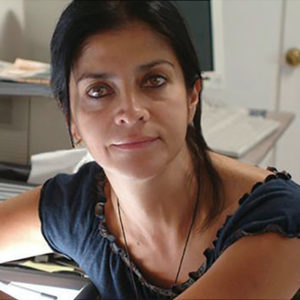 MARCELA TABOADA is a freelance photographer based in Oaxaca, Mexico since 1986. Her work has been published in various newspapers, magazines, numerous books and art catalogs of Mexico, and abroad. She has taught photography at universities, high schools, workshops for children and blind photographers, and has taught photography for Santa Fe Photographic Workshops and National Geographic Photo Camp. Her work is held in many collections including The Hasselblad Center, Sonoma Museum of Art, Throckmorton Fine Art, NY, The Museum of Contemporary Photography, Chicago, The Wittliff Collection, the Centro de la Imagen in Mexico City, and the Museo de Arte Contemporaneo de Oaxaca (MACO), among others.
MARCELA TABOADA is a freelance photographer based in Oaxaca, Mexico since 1986. Her work has been published in various newspapers, magazines, numerous books and art catalogs of Mexico, and abroad. She has taught photography at universities, high schools, workshops for children and blind photographers, and has taught photography for Santa Fe Photographic Workshops and National Geographic Photo Camp. Her work is held in many collections including The Hasselblad Center, Sonoma Museum of Art, Throckmorton Fine Art, NY, The Museum of Contemporary Photography, Chicago, The Wittliff Collection, the Centro de la Imagen in Mexico City, and the Museo de Arte Contemporaneo de Oaxaca (MACO), among others.